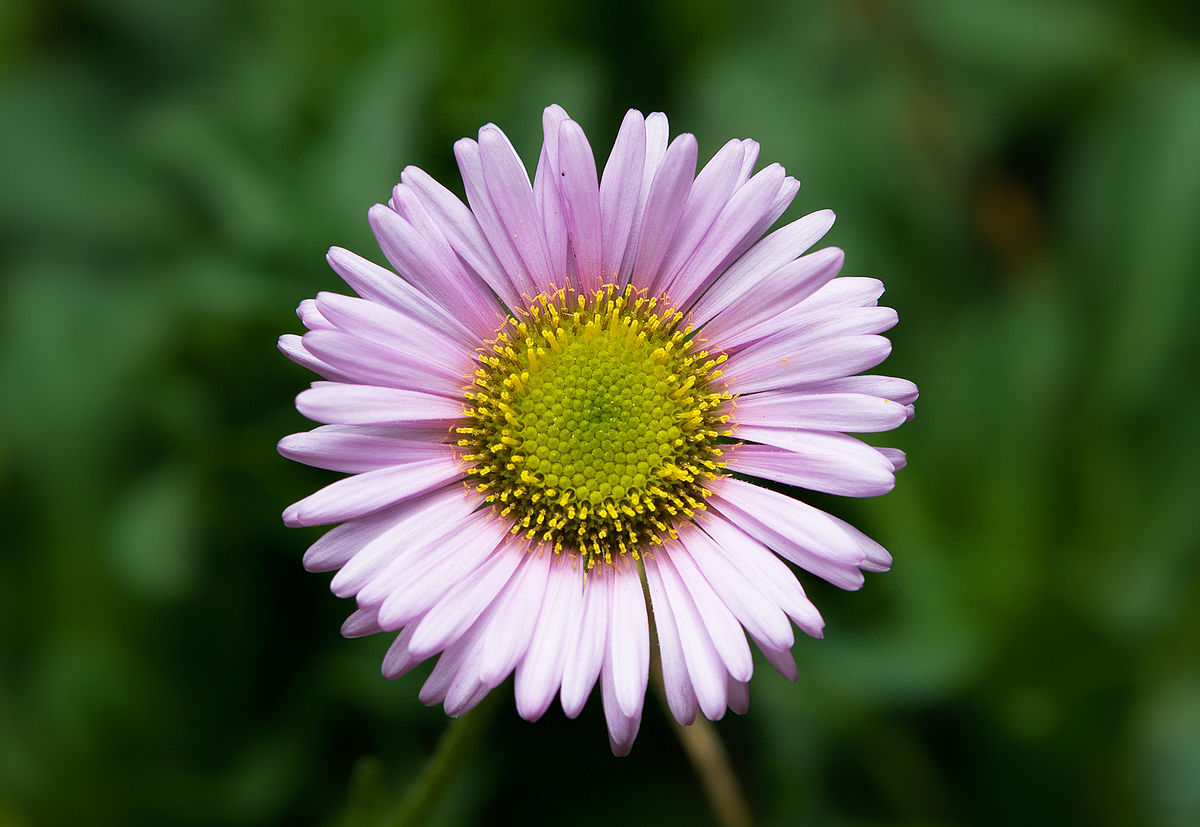Seaside Daisy, Beach Aster (Erigeron glaucus) via BeWaterWise.com
A few months ago I was invited down the office of the Metropolitan Water District to meet a number of people involved in their BeWaterWise.com project to help reduce water usage in California. As part of their efforts, they focus on providing plant alternatives to water hungry lawns. Over the next several weeks, I will be highlighting some of their garden alternatives as part of this series. For more information on these plants and other water conservation ideas and programs, vist BeWaterWise.com. Follow the MWD on Twitter at BeWaterWiseH2O — Douglas

“Erigeron Glaucus” by JJ Harrison (jjharrison89@facebook.com) – Own work. Licensed under CC BY-SA 3.0 via Wikimedia Commons.
Another native Californian, this free-blooming plant has purple daisy-like flowers with yellow centers. It flowers in the spring and summer and grows in clumps about 1 foot high and 2 feet wide. It likes full sun or light shade and requires moderate water in warmer areas.. — BeWaterWise.com
Erigeron glaucus is a species of flowering plant in the daisy family known by the common name seaside fleabane, beach aster, or seaside daisy.
This wildflower is native to the coastline of Oregon and California where it grows on beaches, coastal bluffs and dunes. This is a perennial daisy reaching heights between 5 and 30 centimetres (2.0 and 11.8 in) with branching, nodding stems which may be glandular and hairy to hairless. It grows from a stout rhizome and produces thick, firm, rounded to spoon-shaped leaves, sometimes with a few teeth along the edges, each two to 13 centimeters long.[1] Its stems bear inflorescences of one to 15 flower heads which are variable in size from one to over three centimeters wide. The centers contain golden yellow disc florets and the edges are fringed with ray florets which may be long or quite short, and are shades of deep blue and purple to nearly white. While typical habitats include coastal bluffs, one highly specialised plant association is found within the two Cupressus macrocarpa dominant forests in Monterey County, California. — Wikipedia
- Seaside Daisy, Beach Aster (Erigeron glaucus) at BeWaterWise.com
- Seaside Daisy, Beach Aster (Erigeron glaucus) at Wikipedia
- Seaside Daisy, Beach Aster (Erigeron glaucus) at San Marcos Growers
Previously in the Interesting Plant series:
- Toyon (Heteromeles arbutifolia)
- California Lilac (Ceanothus)
- Bigberry Manzanita (Arctostaphylos glauca)
- Douglas Iris (Iris douglasiana)
- Malva Rosa (Lavatera assurgentiflora)
- Baby Blue-Eyes (Nemophila)
- Coral Bells or Alum Root (Heuchera)
- Deer Grass (Muhlenbergia rigens)
- Echeveria ‘Lola’
- View all past “Interesting Plant” posts
Interesting Plant is a series from A Gardener’s Notebook blog and podcast that highlights the most interesting plants I find in my Internet and real-world travels — Douglas





